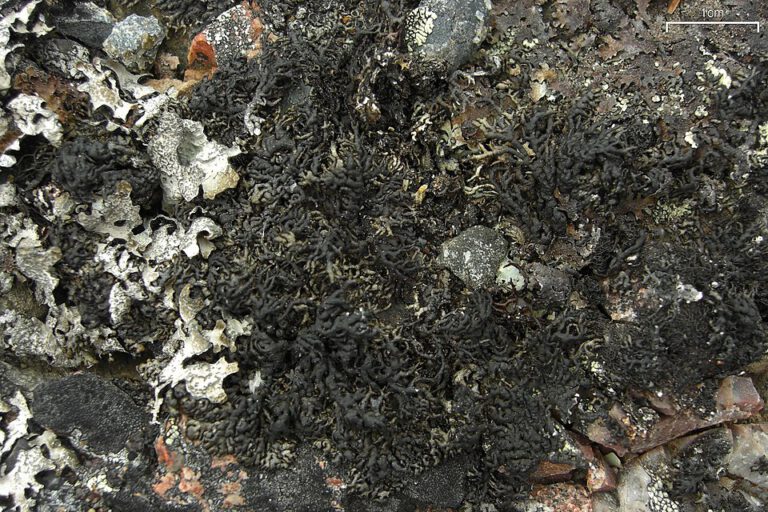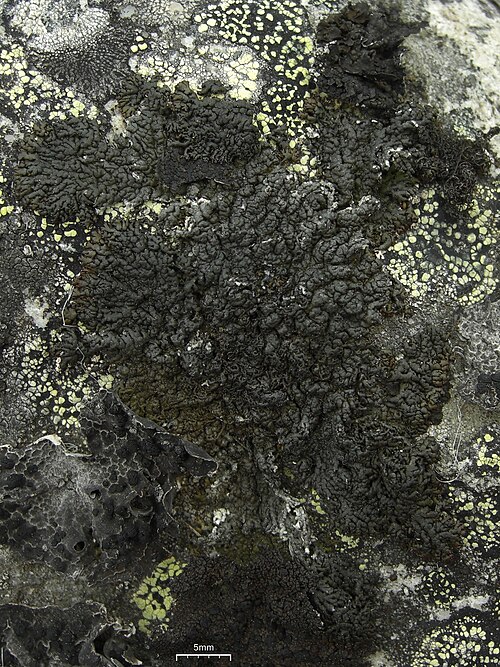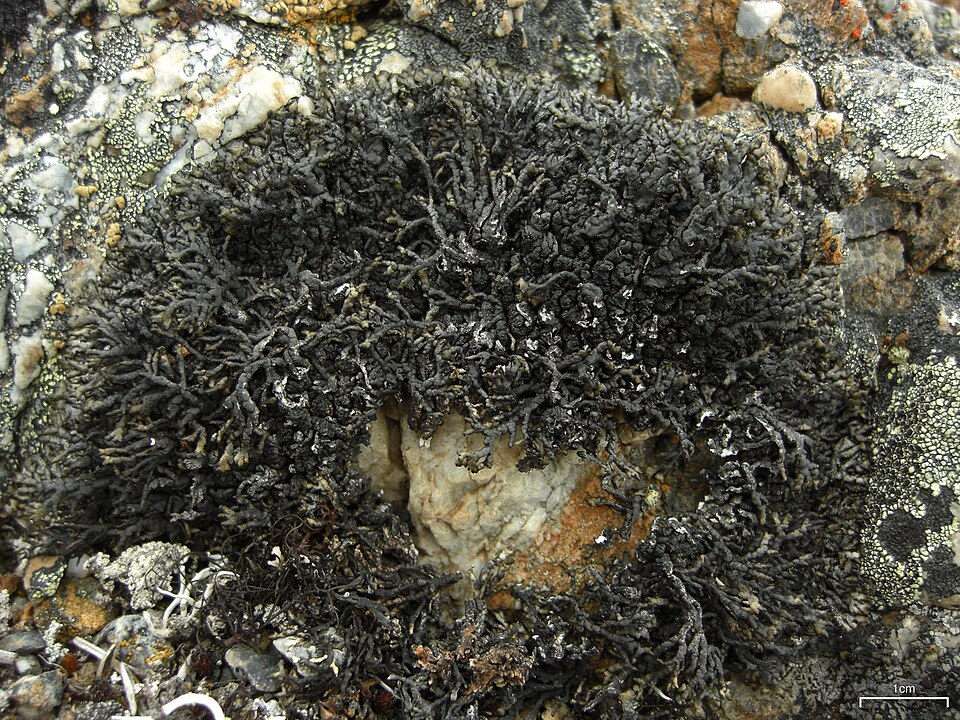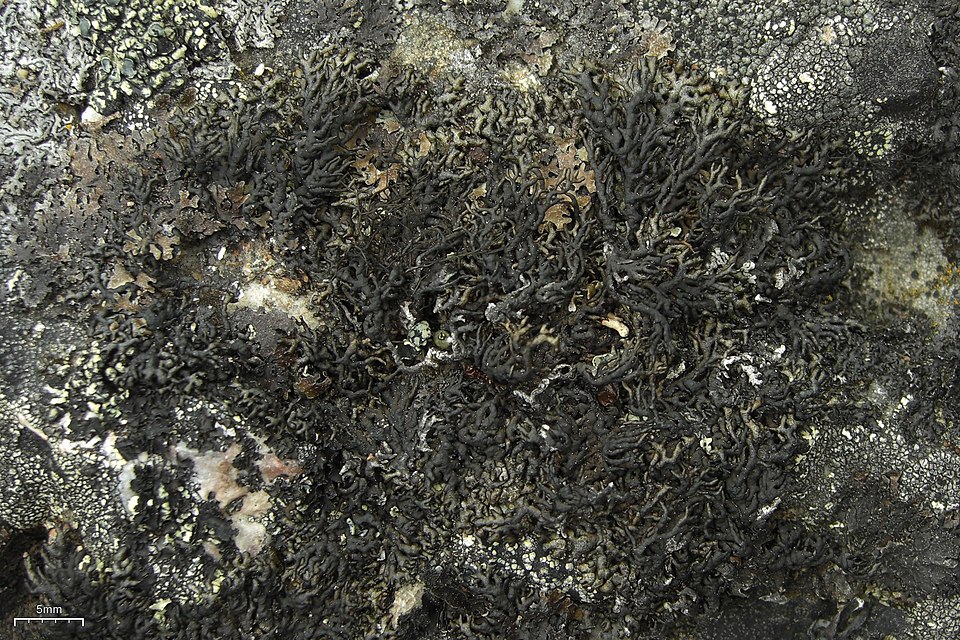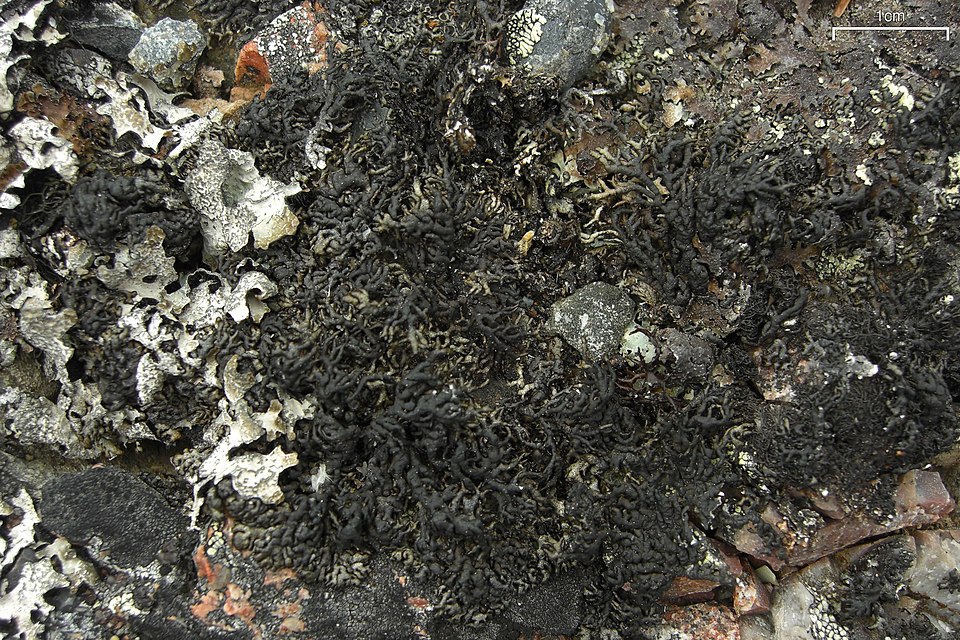Allantoparmelia Lichen: A Hardy Alpine Rock Dweller You Can’t Grow (But Should Appreciate!)
If you’ve ever hiked in the mountains and noticed crusty, gray-green patches decorating the rocks, you might have encountered the fascinating Allantoparmelia lichen. While you won’t be adding this particular species to your garden bed anytime soon, understanding what it is and why it matters can deepen your appreciation for the incredible diversity of life that surrounds us.
What Exactly Is Allantoparmelia Lichen?
Allantoparmelia alpicola isn’t your typical garden plant—in fact, it’s not a plant at all! This species is a lichen, which is actually a remarkable partnership between a fungus and algae (or sometimes cyanobacteria). Think of it as nature’s ultimate roommate situation, where both partners benefit from living together. The fungus provides structure and protection, while the algae produces food through photosynthesis.
This particular lichen goes by the scientific name Allantoparmelia alpicola, though it was previously known as Parmelia alpicola. As its name suggests, this is an alpine specialist that calls the high mountains of North America home.
Where You’ll Find This Mountain Dweller
Allantoparmelia lichen is native to North America, specifically thriving in mountainous regions where the air is crisp, clean, and often thin. You’ll typically spot this hardy survivor in alpine and subalpine zones, where it has mastered the art of making a living on bare rock surfaces that would challenge most other forms of life.
How to Identify Allantoparmelia Lichen
Spotting this lichen in the wild is like finding nature’s own abstract art installation. Here’s what to look for:
- Gray-green to whitish crusty patches that seem painted onto rock surfaces
- A somewhat rough, textured appearance that’s firmly attached to its rocky home
- Preference for exposed rock faces in high-altitude environments
- Often found alongside other alpine lichens in lichen communities
Why This Lichen Matters (Even If You Can’t Grow It)
While you can’t cultivate Allantoparmelia lichen in your backyard, it plays several important roles in natural ecosystems:
- Air Quality Indicator: Lichens are incredibly sensitive to air pollution, making them natural barometers for environmental health
- Soil Building: Over time, lichens help break down rock surfaces, contributing to soil formation
- Ecosystem Foundation: They provide microhabitats for tiny creatures and contribute to the complex web of alpine life
Can You Add Lichens to Your Garden?
Here’s the thing about lichens like Allantoparmelia alpicola—they’re not something you can simply plant and water. These remarkable organisms have very specific requirements for air quality, humidity, temperature, and substrate that are nearly impossible to replicate in a typical garden setting.
However, if you’re interested in supporting lichen diversity, you can:
- Maintain clean air around your property by avoiding pesticides and chemicals
- Leave natural rock surfaces undisturbed if you have them
- Create habitat for native plants that support overall ecosystem health
- Appreciate the lichens that naturally occur in your area without trying to move or transplant them
The Bottom Line
Allantoparmelia lichen represents one of nature’s most successful partnerships, thriving in conditions that would challenge most other life forms. While you can’t invite this particular alpine specialist into your garden, understanding and appreciating these remarkable organisms helps us recognize the incredible diversity of life that exists beyond our cultivated spaces. Next time you’re hiking in the mountains, take a moment to appreciate these crusty pioneers that make their homes on bare rock—they’re doing something pretty amazing up there!
